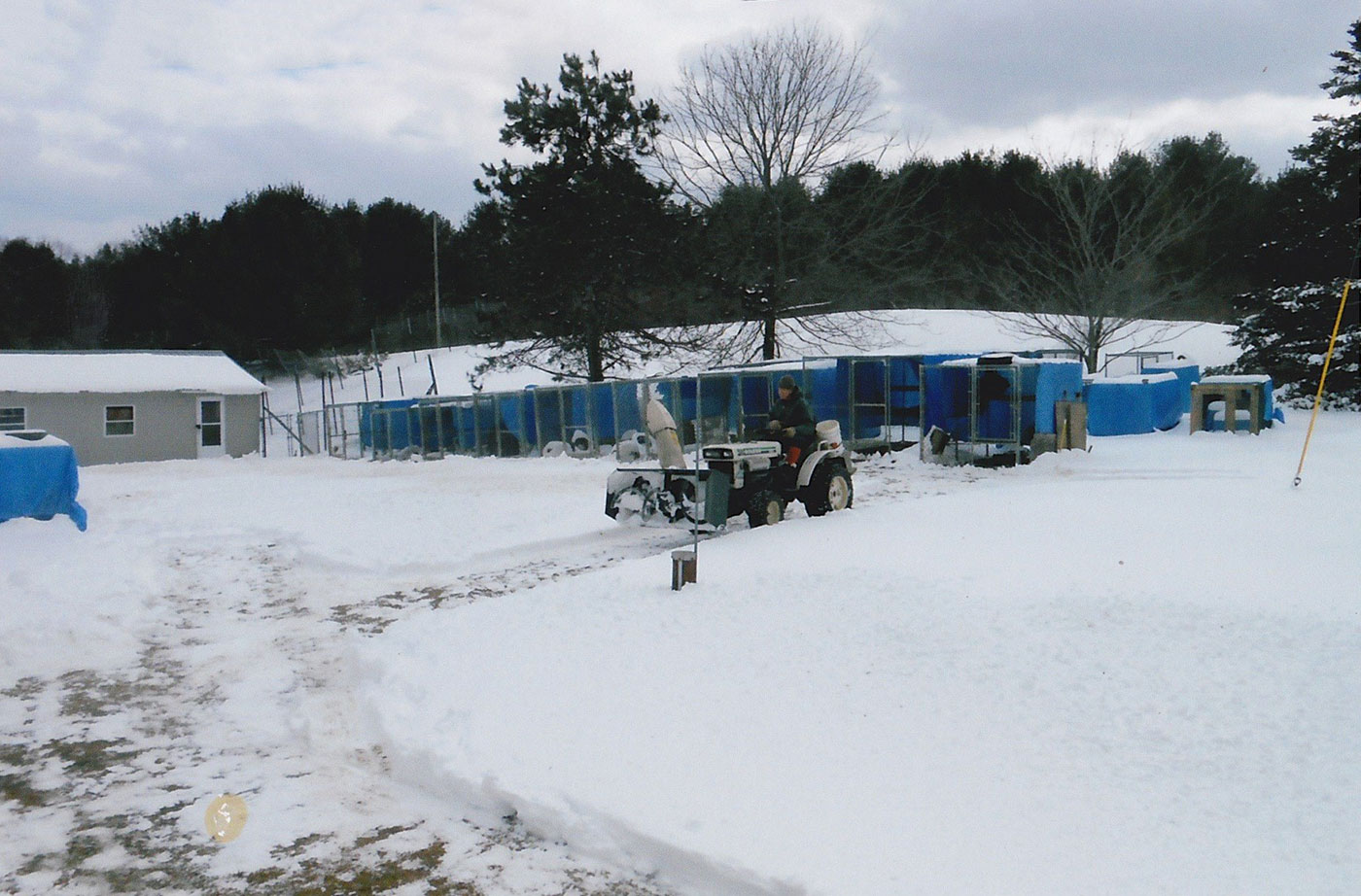You might think that winter is a respite for Don Cote and the three “regular” volunteers at the wildlife center. While it’s true they don’t have admissions of newborn animals, the months after fall releases and before springtime births are hardly quiet.
There are still critters on-site that were not old enough or healthy enough to be released in October, as well as new admissions for animals injured by vehicles, predators, or human interaction. Dishes need to be washed, towels laundered, food prepared, kennels and cages cleaned, and tarps replaced, all of which become even more tedious with snow removal and thawing frozen water dishes. Many of us complain during the winter months about the shortened daylight, but feeding and cleaning chores at Duck Pond Rehab can’t be postponed or delayed just because it’s dark.
There is no question that the Center could use physical assistance, especially during the winter. Although Don has a snowplow, he can’t get too close to outside pens and shoveling is required, along with sanding slippery areas on the footpaths. Fencing, enclosures, and tarps often need to be repaired. Roofs need to be cleared of snow and ice. If you have any general handyman experience, are dependable and punctual, and interested in lending a helping hand, please contact Don at the number, or Amy at the email, listed below.

Wildlife Rehabilitator Donald Cote plows snow at the Duck Pond Wildlife Care Center in Vassalboro. Photo courtesy of Donald Cote
While many well-meaning and caring folks would like to help as hands-on volunteers, there are health and safety concerns to be considered. As Carleen Cote wrote in a July 1997 column, each human caregiver presents a different scent and voice pitch and tone, which add stress to the animals, especially youngsters, so help in feeding is not in their best interest. Working with and around wildlife always presents the possibility of being bitten or scratched. The cost for a volunteer’s required rabies protection and other vaccinations can be prohibitive.
If you aren’t able or prefer not to provide light labor, there are plenty of items on the Wish List that are always needed: bleach, cleaning supplies, heavy duty garbage bags, newspapers (no shiny inserts), towels, dry dog and cat food (no dye), canned dog and cat food (no dye), paper towels, bagged shavings, frozen berries (no syrup), birdseed, and even apples (not from recently sprayed trees). Please be advised that leftover, torn, or opened bags of pet food cannot be accepted.
Financial donations, whether as cash, check, or gift cards (Hannaford and Walmart are visited weekly), are of course always appreciated to help support the Rehab Center’s work. Don told me he puts about 14,000 miles a year on his vehicle to trap, transfer, and release wildlife. Food and medical expenses typically cost $30,000-35,000 a year.
There’s no denying these months of COVID restrictions have limited our in-person interactions with others, but they don’t limit acts of kindness. If you know of an organization or school that would like to support Duck Pond Wildlife Care Center, fundraisers can still be successful with money collected in donation jars, bottle returns, or a percentage of sales dedicated to the wildlife. All donations go directly toward the care of the animals.
Donald Cote operates the Duck Pond Wildlife Care Center on Rte. 3 in Vassalboro. It is a nonprofit federal and state permitted rehab facility that is supported by his own resources and outside donations. Mailing address: 1787 North Belfast Ave., Vassalboro, ME 04989 TEL: (207) 445-4326 EMAIL: thewildlifecarecenter@gmail.com
—by Jayne Winters, Natural Resources Council of Maine member from South China, Maine
Critter Chatter also appears monthly in the Town Line newspaper.










Leave a Reply